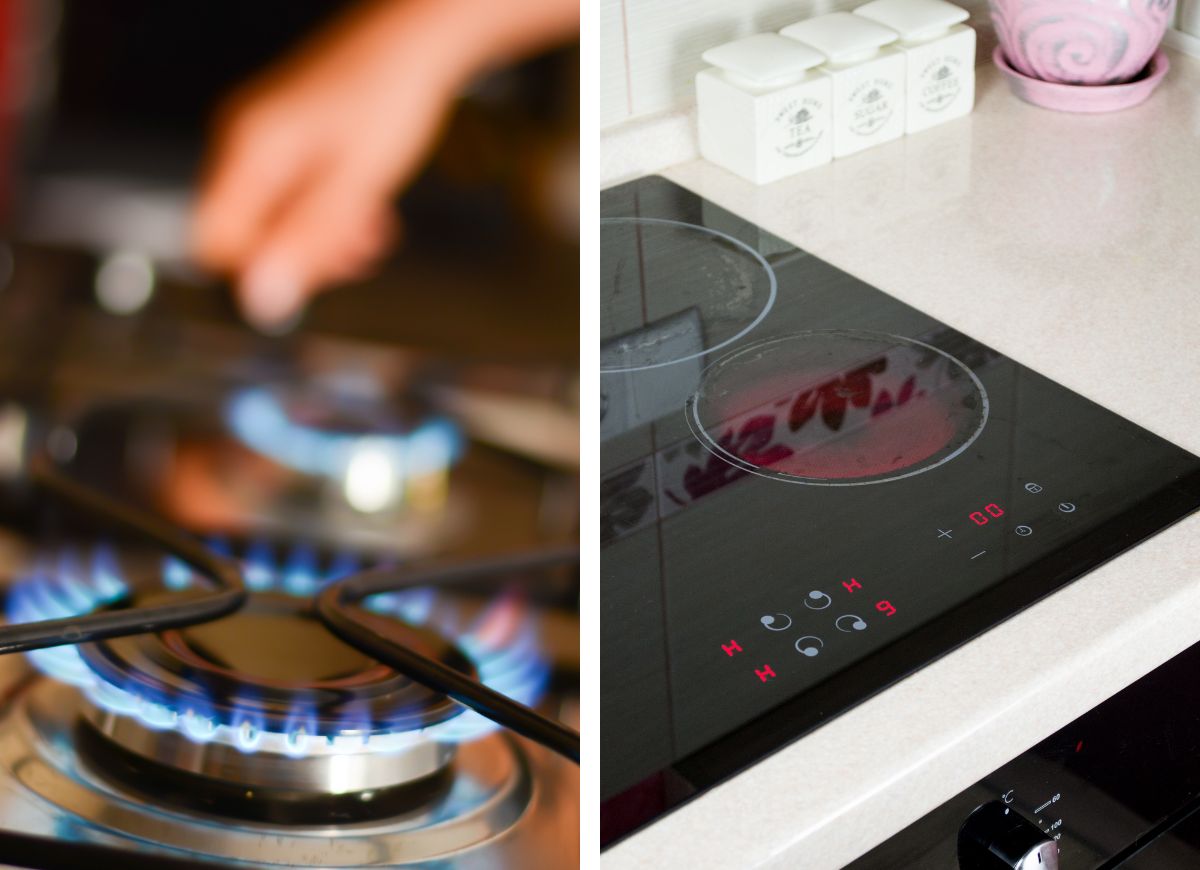We may earn revenue from the products available on this page and participate in affiliate programs. Learn More ›
Gas stoves cook food using an open flame when the gas is ignited, while electric stoves use electricity and metal heating elements to prepare food. There are advantages and disadvantages to both options. For instance, you can adjust the heat of gas stoves faster than you can with electric stoves, but electric stoves are generally considered safer since gas stoves use an open flame and produce emissions, like carbon monoxide, that can harm your health and the environment.
If it’s time for a stove replacement, learn all about the differences between gas vs. electric stoves to decide what’s right for your household.
What Is a Gas Range? Pros & Cons
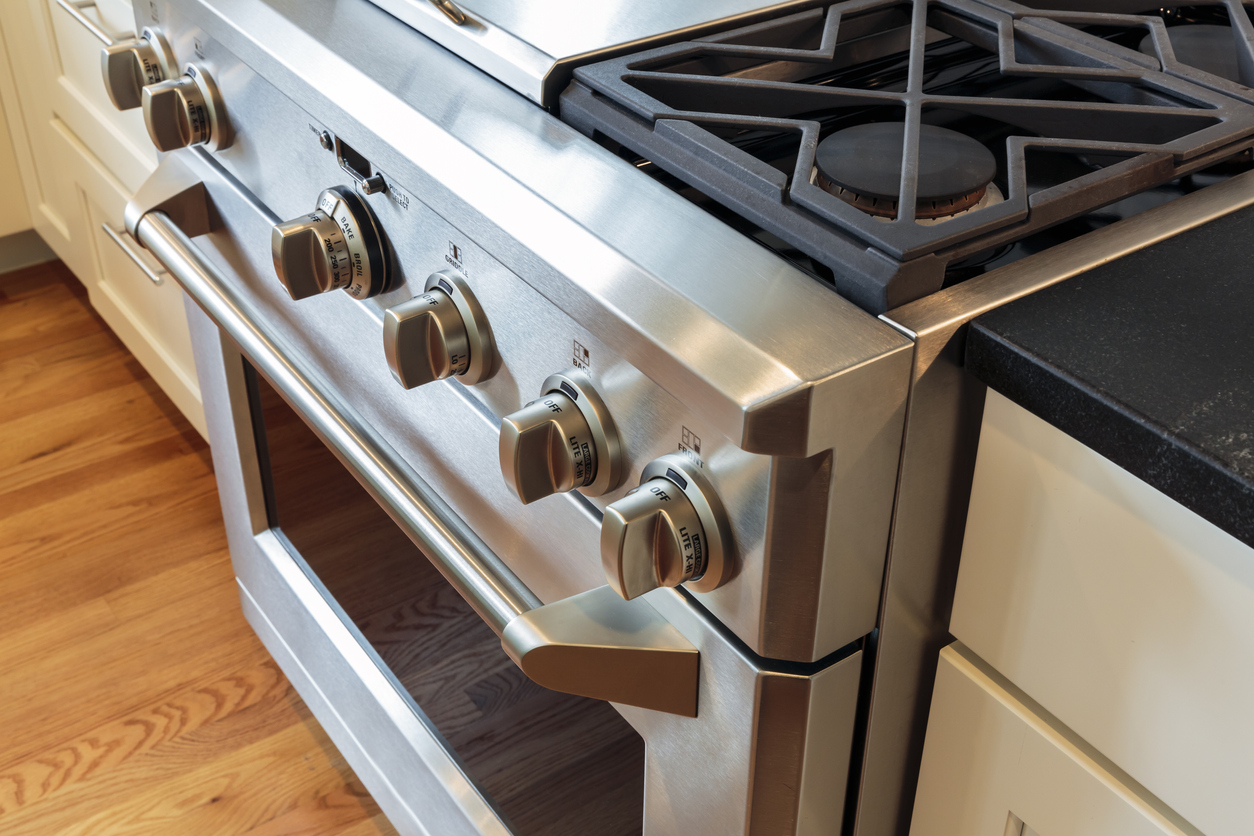
Most gas stoves run on natural gas from the local town or city, but they can also potentially run using propane, butane, or liquefied petroleum. Depending on where you live, the gas line requirement may be a deal-breaker. In most suburbs, the infrastructure is such that gas- and electric-powered stoves are equally feasible. In more remote areas, gas lines are not a given, although rural residents may have a refillable propane gas storage tank from which a stove can draw.
Gas Range Pros
- Faster and more precise heat control
- Usually more inexpensive to run than electric ranges
- Can be used during a power outage
Gas Range Cons
- Typically limited to regions with a natural gas line or to homes with a propane tank
- Can produce emissions that are harmful to humans and the environment
- Often trickier to clean than electric stoves
- Usually more expensive to install
What Is an Electric Range? Pros & Cons
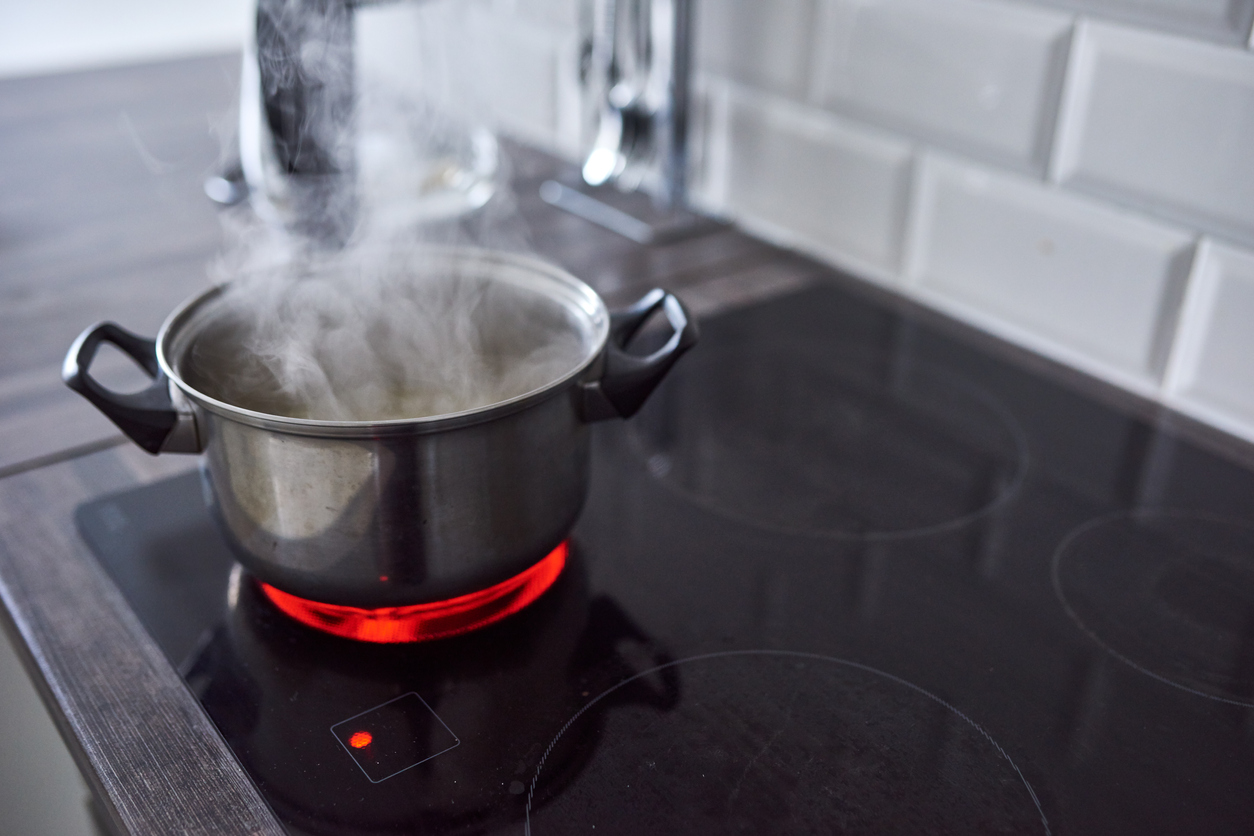
Electric stoves use electricity and metal heating elements to cook food. Some feature open coils on the stove top, while others have a smooth ceramic or glass top with the coils buried underneath. As long as your home has electricity, you can operate an electric stove. It simply needs to be plugged in. However, most electric stoves require a 240-volt power outlet.
Electric Range Pros
- Safer than gas stoves
- Usually less expensive to install than gas stoves
- Easy to clean
- Better for keeping food warm after cooking
Electric Range Cons
- Costs more to run than gas stoves
- Heating isn’t as fast or precise
- Can’t be used during a power outage
Comparing Gas vs. Electric Stoves
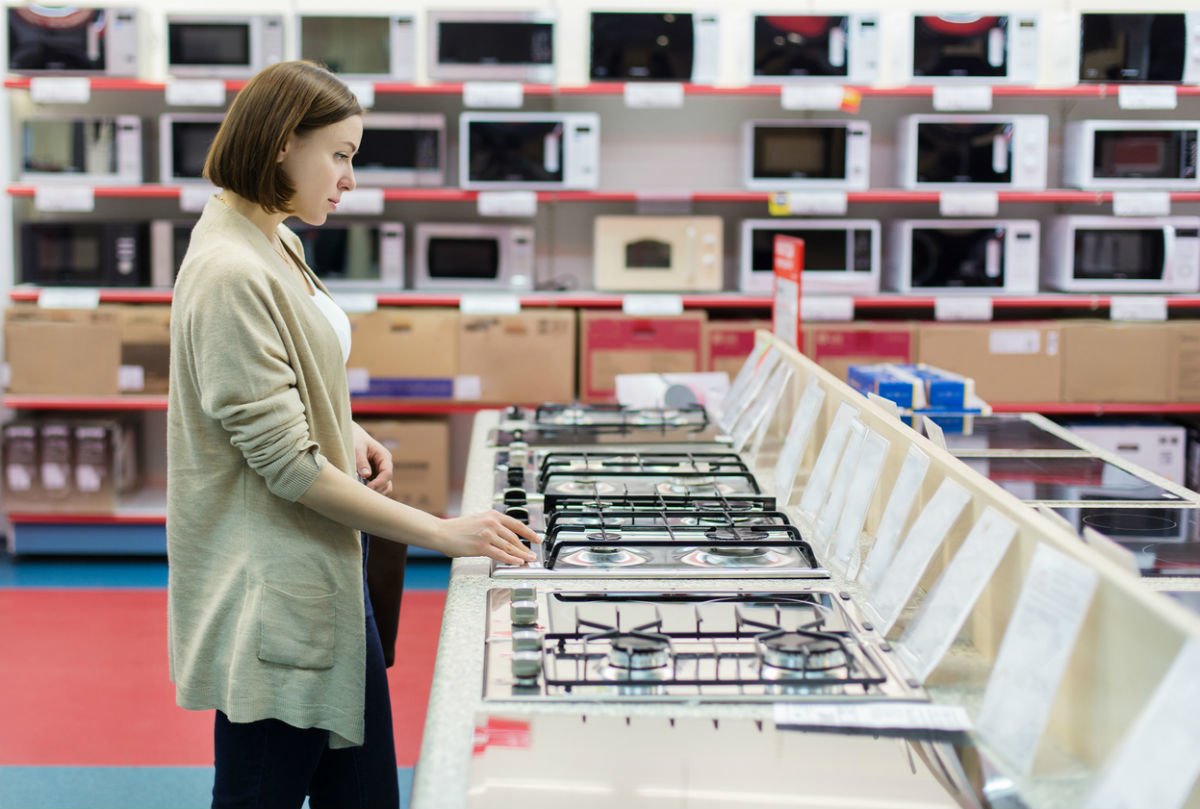
There are a few important factors to consider when deciding between gas vs. electric ranges, including cost, energy efficiency, and safety.
Safety
Electric stoves are generally considered much safer than gas stoves. Gas stoves can produce harmful emissions, like carbon dioxide and carbon monoxide. These gasses can be dangerous for both you and the environment, especially when they are not well ventilated.
Gas stoves have open flames, so there’s a greater chance of a flammable item—like a paper towel or dishcloth—catching fire.
Costs and Maintenance

Gas stoves tend to cost a bit more to install than electric stoves, but usually not a lot more. However, prices vary quite a bit depending on the model, brand, and features, so in some cases, electric stoves might cost more.
Operating costs, however, are often different enough to be a deciding factor. It’s difficult to make blanket statements because utility rates vary by state. But in most states, natural gas costs less than electricity, and where that’s the case, a gas stove typically costs 10 to 30 percent less to operate on an ongoing basis.
While cleaning stoves with open electric coils is comparable to cleaning gas stoves with burners and grates, electric stoves with a glass or ceramic top are usually much easier to clean than gas stoves. When cooled, these electric stove tops clean up with just the wipe of a damp rag and dish soap.
Energy Efficiency
While gas stoves are cheaper to operate than their electric counterparts, they also waste more energy. Seventy-four percent of an electric range’s energy is transferred to food, compared to about 40 percent on a gas range.
However, electric stoves aren’t the most energy-efficient option out there. According to a study published by the American Council for an Energy-Efficient Economy, induction cooktops, which use electromagnetism to heat cookware, can transfer up to 90 percent of their energy to food.
Temperature Control
Gas stoves respond instantly to temperature changes as the flames spread around the bottom of a pan, so they give you more precise heat control, which can make cooking more successful. Electric stoves do not respond as quickly, particularly when going from a hotter to cooler temperature.
Cooking Techniques
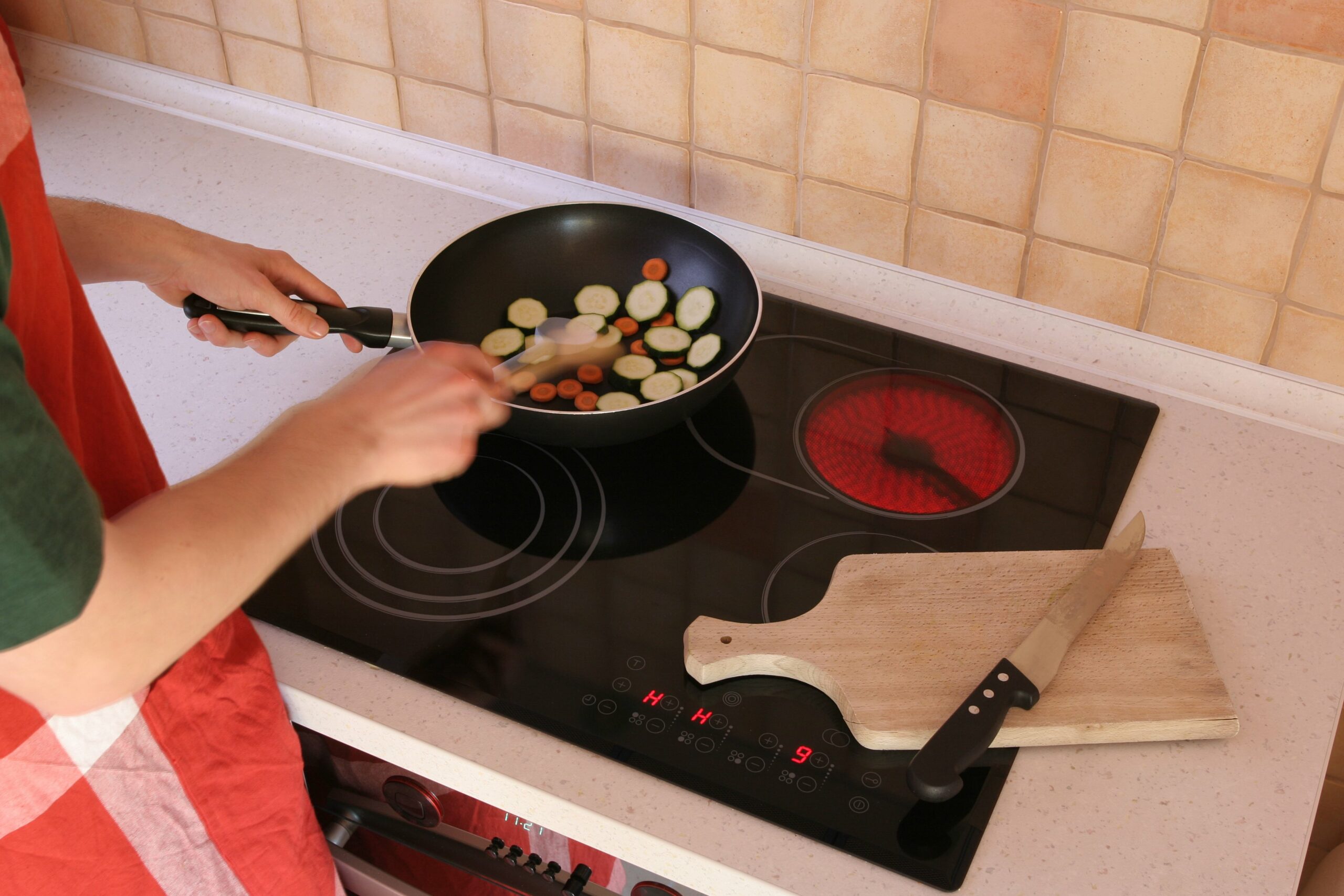
Gas vs. electric ranges tend to cook food a little differently. Here’s how the two compare when using different cooking techniques.
Boiling and Simmering
The fast and precise heat that gas stoves offer makes them slightly better than electric stoves at boiling water quickly and finding the perfect simmering temperature.
Sauteing and Stir-frying
Gas stoves’ rapid heating response also makes them a bit better at sauteing and stir-frying, but both types can successfully manage this cooking technique.
Baking and Roasting

Electric ovens tend to distribute heat more evenly than gas ovens, making baking and roasting easier. They also emit a drier heat, which is better than gas for browning and crisping dishes.
Grilling and Broiling
The quick heat offered by gas ranges means that broiling and grilling typically won’t take as long as it would when using an electric stove. However, many electric ovens, especially newer models, can still broil food relatively quickly.
Melting and Warming
When you turn the heat off of a gas stove, it cools quite fast, whereas electric stoves take longer to cool down, which can make melting and warming a bit easier on electric stoves. However, the precise heat offered by gas stoves means you can usually melt and warm food with them just fine.
Final Thoughts
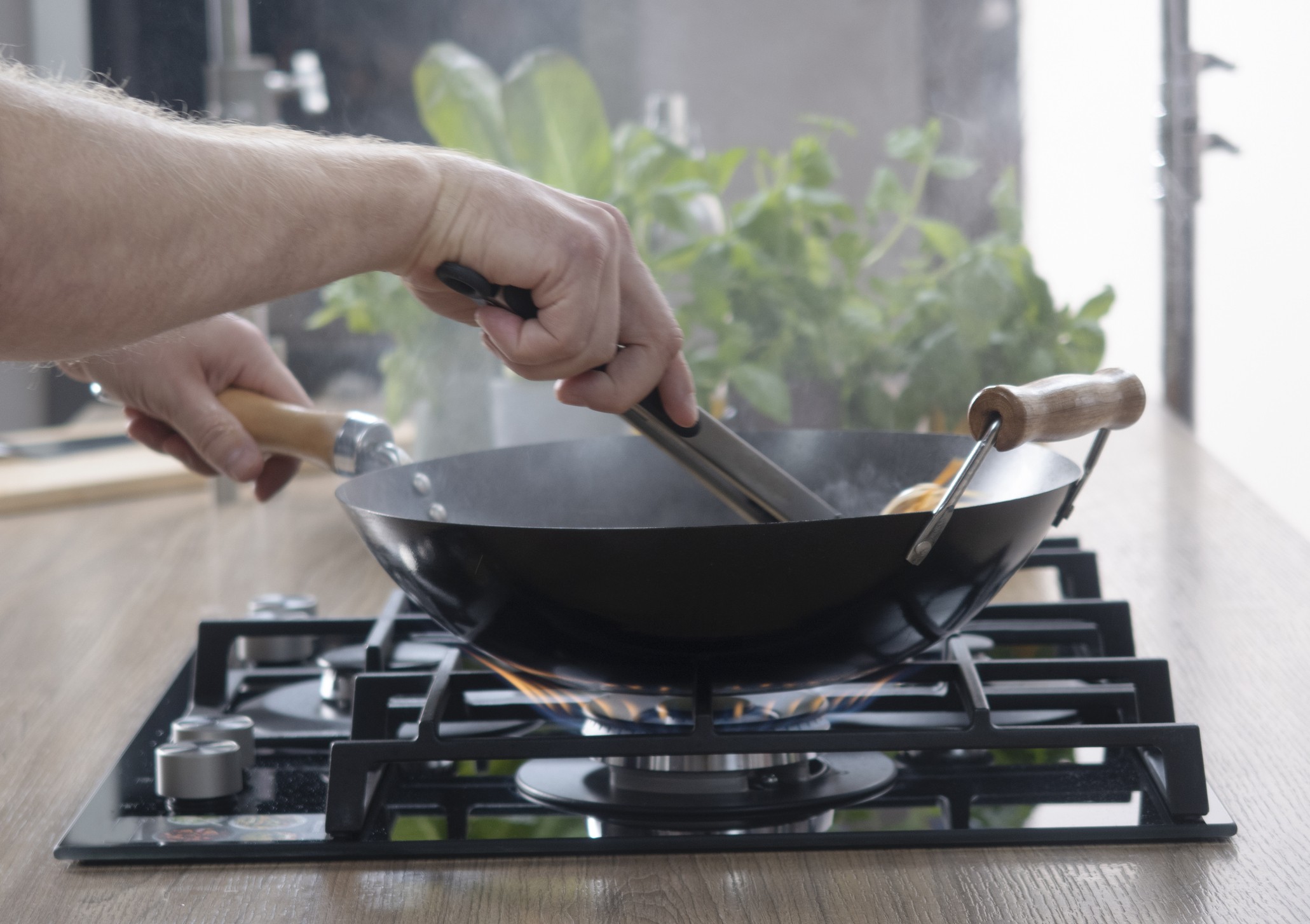
The right choice between gas vs. electric ranges depends on your priorities. Gas ranges offer faster and more precise heat than electric stoves, but they’re not as safe to use. Meanwhile, electric stoves are more energy efficient and easier to clean than gas, but they cost more to run and can make certain cooking techniques take longer. After weighing the pros and cons between each type, learn how to save money on this major appliance before making a purchase.

